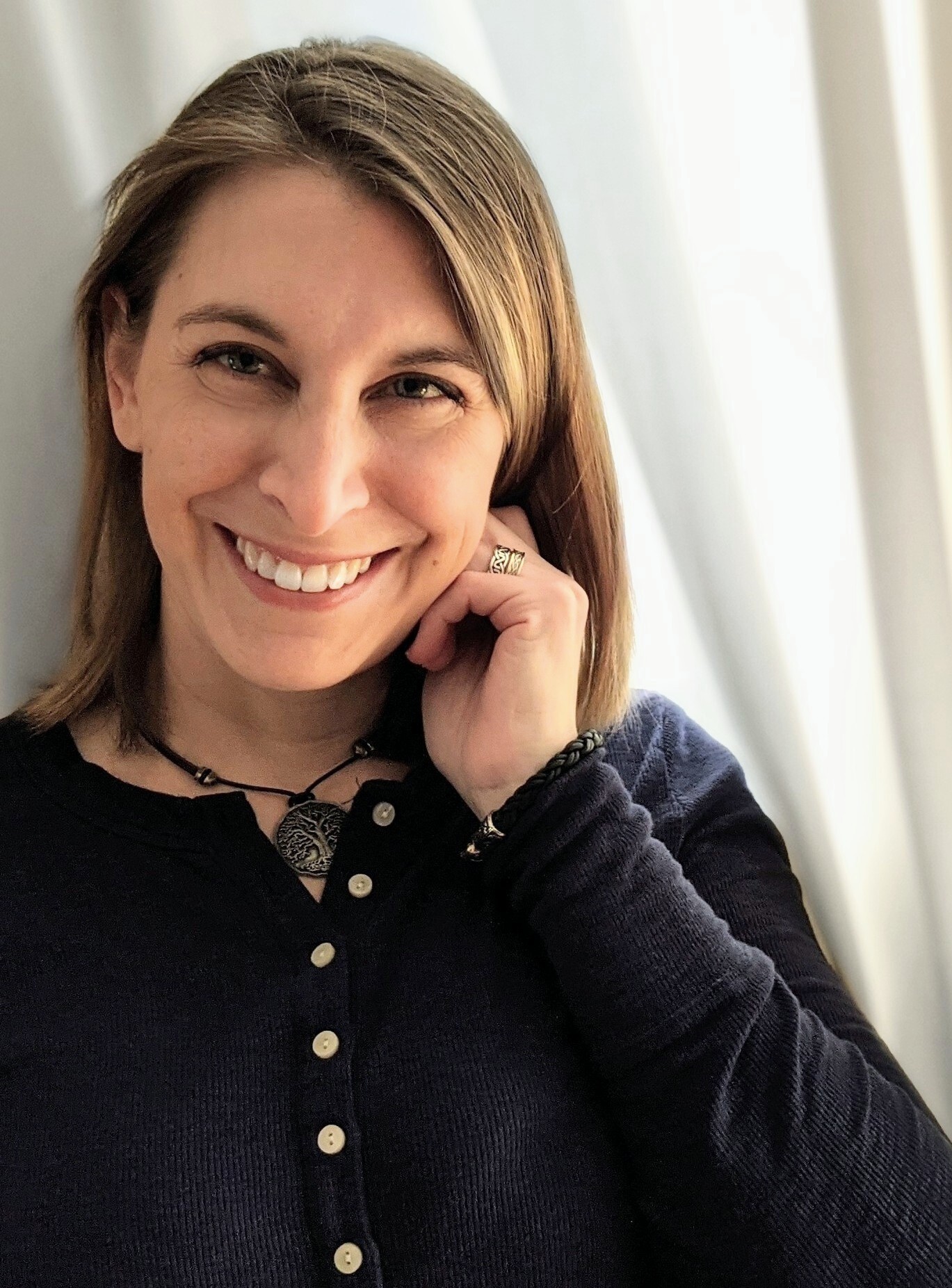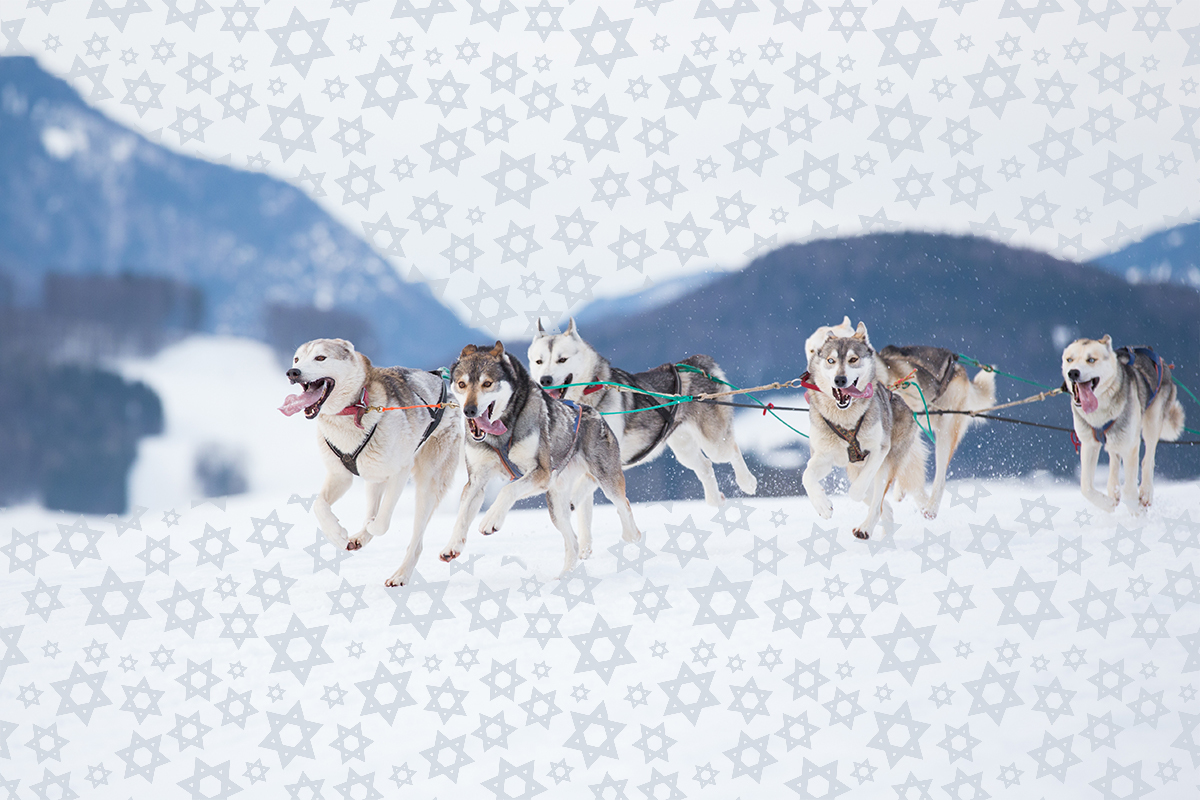Alanna Martin’s “Hearts of Alaska” trilogy brings together the world of romance with huskies, Alaska — and Jews! The first book, “Hearts on a Leash,” released April 2021, is about Taylor Lipin, a young woman from Helen, Alaska who did everything she could to leave her tiny town and the family feud her family has with the Porters, another large family in town. But when a family emergency brings her back home, she ends up falling for a newcomer, Dr. Josh Krane, and his adorable huskies. When she learns that he’s actually a Porter, they have to figure out if their relationship is worth kicking the hornet’s nest.
“Paws & Prejudice” (released June 2021) and “Love and Let Bark” (due out in November of this year) also feature characters from the Porter and Lipin families. Two of the characters have Jewish backgrounds, including hunky Josh Krane and Ian Roth, the newcomer to town opening up a brewery.
Martin spent nine years in academia studying psychology before deciding that writing was her calling. A lover of latkes, rugelach and chocolate babka, she adds some of her Jewish family history into the romances themselves. I recently had a chance to talk with her about her new series, how cancer treatments led her down the path to romance, and the importance of a happy ending.

This interview has been edited and condensed for clarity.
What made you decide to start writing romance?
I’ve been writing books for a long time now, probably about 10 years. But I didn’t really start reading romance until around 2015/2016. I mostly had been reading and writing YA and fantasy, but I [was] going through cancer treatment and spending long hours getting infusions. I really wanted to read books that had these happily-ever-afters and everyone getting what they deserve in the end. I started reading a lot, and that’s what got me into the genre.
What made you decide to set your series in Helen, Alaska?
The book was originally set in Massachusetts, because I’m in New England. I needed it to have that small town with a Wild West sort of vibe so you could believably have this family feud. My editor had suggested Alaska, which I love because Alaska is gorgeous and it does have that pioneer sort of take to it.
Why center the series around a family feud?
I love family drama. I wouldn’t say there are family feuds in my own family, but there were definitely relationships where one side of the family was like, “If you marry this person, we’re not coming to the wedding and we’re cutting you out of the family,” so I think I just had a personal interest in that kind of dynamic. The name of the town I chose was consciously named after my maternal grandmother, who had to elope with my maternal grandfather because their marriage was forbidden.
If you don’t mind sharing, what was forbidden about it?
My maternal grandfather was raised in an Orthodox Jewish family and was supposed to get married as part of an arranged marriage. My maternal grandmother was raised Reform Jewish. They were not allowed together.
Speaking of Judaism, two of the major characters across the series have Jewish backgrounds. Why did you decide to add Jewish heritage to these characters?
I grew up in a mixed-faith house with a Jewish mother. Neither of my parents were religious, so it’s the cultural aspects of Judaism that I identify with the strongest. But I never really thought about religion at all in my writing until the 2016 election. Seeing the fallout from that and the rising antisemitism made me decide to make a conscious effort to make sure I identified my characters specifically as being Jewish, because that representation is important.
A lot of Josh is really drawn from my own life, including the one scene with him and his uncle where he assumes his uncle was about to say something antisemitic. Both Josh and I have non-stereotypical Jewish last names, and that’s colored the way people treat us and what they’ll say around us. I wanted to incorporate that because it definitely affects your relationships with people and trust. I think that comes out with Josh and his family, and in [“Paws & Prejudice”] with Ian and his wariness about being a stranger in town.
Why center the series around huskies?
I love huskies but I do not have any. I’m kind of dog-deprived. My husband has really bad allergies so we will probably be pet-deprived forever. It was partly a wish fulfillment. I want to write about things that I can’t have.
What do you want people to know about your books?
When I started reading romance, it was just an escape from everything around me — I could tune out the fact that I was sitting in the hospital chair for six hours with an IV stuck in my arm. I could just be happy enjoying someone else’s journey… I want to provide people with an escape. That kind of story, those escapist fluffy stories, if that’s what we want to call them, are really good for people’s mental health.
I think it’s great that romance is starting to be taken more seriously. In general, it’s a genre that has always been kind of in the gutter of genres, so to speak. Lately, it’s starting to get a lot more positive attention. That means a lot to me, again, because I feel like there’s a lot of important stories that are coming out of it. They’re helpful for women, because they center women’s stories, but I think, especially right now, with the world being somewhat on fire — in some cases, literally — having that escapism I just think is really helpful. I’m glad to be a part of that.



